|
Content note: this article discusses childhood abuse and self-harm; those paragraphs have green text.
After working in fat liberation and body positivity for about a decade, I am super familiar with the power of this kind of work. In short, it transforms people and it often does so in unexpected ways. When we reconnect with our body, it doesn’t just mean we may have more confidence or a better relationship to the mirror. It means we reconnect to the information superhighway that is our body. It means we reconnect to what our bodies are telling us - not just about food or hunger - about everything. It might mean that our intuition becomes stronger and we make an unexpected realization about our career or a big move in our relationship. We might have a creative breakthrough after years of blockage. I’ve seen this happen to other women when they “break up” with diet culture. And in my case, reconnecting to my body helped me realize - and undeniably feel - just how toxic my relationship to my family was. My family has been ravaged by the trauma of immigration, war, multiple generations of being unparented, and the legacy of alcoholism (which continues even if the child of an alcoholic is technically sober). I was raised in the shadow of their unresolved hurt and pain. In fact, my mother has told me that she decided to have me so that I could possibly help with healing the adults around me. I grew up in a family that harmed me, but I was deeply loved and had consistent access to material security. There are, for instance, pictures of me smiling with stacks of Christmas presents. In fact, there are lots of pictures of me looking happy, playing, and sharing sweet moments with my mother, grandmother and aunt. It took a long time to reconcile those photos with my memories of loneliness, fear, anxiety and emotional instability. This is the fundamental problem for the child of a so-called “toxic family” (I don’t love that term because it feels dehumanizing and reductive, but I haven’t come up with another one): we don’t trust our recollection of the events. Often all we have is our memory and the instinct that something is very wrong, but we’ve been taught to deny these things. In fact, our brains sometimes forget what happened so we can reconcile still engaging with the people who fundamentally undercut our ability to ever truly feel safe. -------------------------------------------------------------------------- There’s no documentation of the childhood where my aunt showed me porn, where my baby brother cried at night and I was the one who had to wake up to give him a bottle, where my grandfather gave me the silent treatment for hours as I cried, where my mother left without announcement for months on end, where my anxiety was so acute that for years I was convinced that I would die if I fell asleep, where my grandmother didn’t know what to do so she did nothing in hopes of keeping the peace. I can look back and intellectually understand that my family is made up of real, live, squishy people who are very hurt. I wish life had been different for all of us, especially them. I wish no one had hurt my grandparents. I wish my mom had support and a strong foundation of self-worth. I can understand that they need compassion, which I am happy to give. I can recognize that the pain I feel around them doesn’t take away from the love I will always have for them. I can recognize that they need support and that they actually did their version of their very best. But the body is not a creature of intellect. It doesn’t care how damaged or hurt my family is because all my body knows is the very thing that has been beating like a drum in the pit of my stomach for as long as I can remember: I am not safe here. Before body positivity, I had been able to ignore that signal my entire life. When I decided I wanted to fundamentally change my relationship to my body, I thought that this decision was about refusing to diet or criticize my thighs anymore. It ended up being about a lot more than that. That decision pushed me to actually listen to the messages my body was sending me. Coming off of nearly two decades of restrictive eating, at first it was mostly saying, “FEED ME!” But once I got better at eating consistently, it started telling me other things: when I felt tired, anxious, when I didn’t like someone and when I didn’t feel safe. It was like I had opened a floodgate that had been shut since I was a kid. To be clear, the body never stops giving us information, but up until body positivity I had a rock solid system in place that kept that voice at bay: nowhere above a whisper. It wasn’t a whisper anymore though. It was loud. It was clear. It was undeniable. And honestly, it was overwhelming. That drum in my stomach I mentioned earlier, the one that was telling me to get away from my family, got louder and louder and louder. I tried to bargain with my body. I decided that I couldn’t leave. So I would just “fix” everything. I started with trying to be honest with my family, believing repair was not only possible but straightforward and desired on both sides. I got them registered with a year of therapy, which they sabotaged. I wrote them letters, sent them pamphlets, shared encouraging words, told my story, wrote a novella about it, got angry, got vulnerable, got sad, reasoned, pleaded. I went to therapy. I read self-help books. I wrote in my journal. I did cord-cutting rituals. I tried everything I could think of. My grandmother - the matriarch and most emotionally powerful member of my family - persisted in sticking to a version of the story where the grown ups all around me were just good Christians who took me on annual trips to Disneyland and, hey, made a few mistakes here and there but who doesn’t? And I know that in her mind, that is what happened. That is her truth - a truth she is, in my opinion, entitled to have. My grandparents experienced much, much worse abuse and neglect at the hands of their parents than anything that ever happened to me. So my grandma’s body has a threat detection system that is totally different from mine. We’re speaking two different languages and neither of us knows how to translate the other’s. I’m still working on accepting that her truth and my truth can co-exist, even though each creates a radically different path. Before I went no-contact and was still trying to work through things with them, they’d often pleadingly ask me, “Was it really so bad?” This question would fill me with doubt and with shame for being ungrateful, dramatic and possibly delusional. Before my body positive journey, I used to commute almost two hours each way to visit them every single weekend. Each time, I would dread the days leading up to the visit. When the day finally came, it felt like my adult self was dragging my inner child out of my apartment kicking and screaming. I would sit through my visit, clenching my whole body and talking non-stop in hopes that entertaining them would prevent some awful thing from happening. I’d go home afterwards, relieved and tell myself, “Now that wasn’t so bad was it?” Once I progressed deeper into my relationship with my body, every part of that story got harder and harder. So I tried to visit them less frequently, thinking this might solve the problem. My visits went from weekly to bi-weekly to monthly and then down to once every 6 or 8 weeks. This strategy actually had the opposite effect. The less I went, the less I flexed my self-silencing. Because my body positive practice was picking up steam, I was no longer spending time with people who made me feel bad. This made the visits even more unbearable because the contrast between how I felt with them and away from them was so stark. ---------------------------------------------------------------------- Before long, another unexpected thing happened: I found I was unable to stop from self-harming on the way home from my already infrequent visits. I would pinch and scratch my legs or eat a bunch of crackers really quickly until I had difficulty breathing. I tried to shut up that voice in my body, intellectualize and move forward. But my body wasn’t having it anymore. I had opened the lines of communication, and now my body was giving me information I wanted - as well as information I didn’t. I ultimately went no-contact because my commitment to listening to my body had created a reality where it was simply impossible to stay. It’s wild to believe that it all started with wanting to stop dieting. But that’s the thing. We’re taught that not eating is some small, throwaway thing. But it’s actually everything. When we don’t have the most fundamental thing - food - our bodies never get past the first level of communication: please, feed me. I’m still deep in the process of what it means to be no-contact my family. I have no idea how long it will last. I want my family to be ok. I hate that my absence hurts them. I dream of a world where we can reconcile or they forget about me. I dream of waking up one day with the perfect solution that will make everything better. I feel guilt, shame and confusion every single day. I exist in the space between “I will always love them deeply” and “I may never be able to see them again.” It’s a type of emotional anguish that I’ve accepted because I know deep down that it’s somehow exactly what I’m supposed to be doing right now. Some days are, of course, harder than others. But each time my brain kicks me into a spiral, I turn inward and ask, “Do you want to go back?” And for almost four years the answer has been no. Until that answer changes, I’ll be right here with a confused head and a very, very clear body. What Is Weight Discrimination & How Does It Affect Us? UCLA Researcher A. Janet Tomiyama Has Answers6/20/2020
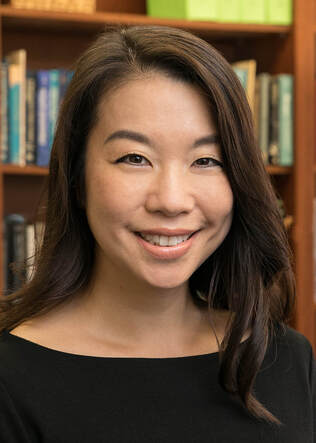 A. Janet Tomiyama, Ph.D., is an associate professor at UCLA. She studies health psychology and social psychology. Tovar: How did you end up researching weight discrimination? Tomiyama: I first studied low calorie dieting and why it didn't work. The evidence was so overwhelming that restrictive dieting was counterproductive. The many non-academics I talked to all seemed to know that already, yet they kept starting new diets. The question for me was: Why?? Why would people do something that they found dreadful and that they knew would not contribute to long-term weight loss? The answer, it seemed to me, was the high levels of anti-fat bias and weight stigma that exists in our society. That was what pushed me into weight stigma research. Tovar: What does weight discrimination look like? Tomiyama: We are just wrapping up a study to answer exactly that question. In it, we had participants text us quick descriptions of weight stigma that they experienced as they went about their daily lives. I can tell you that weight stigma exists in all the domains of our lives: close relationships, the workplace, healthcare, education, from strangers, and the media. Sometimes it's blatant, like a physician discouraging a (fat) patient from getting pregnant because she is "too fat." Sometimes it's subtle, like not people not making eye contact with (fat) individuals. Tovar: What are the effects of weight stigma on individuals experiencing it? Tomiyama: It makes people feel bad and harms their mental health. Weight stigma is linked to depression, anxiety, and eating disorder symptoms. Others' research has linked weight discrimination with inflammation and even mortality risk. Tovar: People always ask me about how ending fatphobia is compatible with promoting health. What would your answer to this question be? Tomiyama: You can improve health -- for anyone -- without ever mentioning the "w" word (weight). People, whatever shape or size they are, can benefit from eating more fruits and veggies, moving around more, getting better sleep, and getting a handle on their stress. There is no need to know about weight, change weight, or certainly denigrate (fat) people in order to achieve health. Tovar: What are the correlations between weight discrimination and education outcomes? Tomiyama: Research has shown that, for example, (fat) graduate school applicants receive fewer admissions offers than lower BMI applicants after the interview stage. We've found that (fat) individuals receive less financial support from their parents for their college education, and this was particularly true of daughters. There's a lot of work showing that weight-based bullying is extremely common, and you could see easily how being bullied leads to poorer educational outcomes. Tovar: What could the potential (health, education, etc.) outcomes of ending weight discrimination be? Tomiyama: That would eliminate the negative mental and health outcomes that I mentioned earlier. As I'll go into later, I do not think the nation's hysteria about "obesity" is warranted. Tovar: You have written about the ineffectiveness of diets. Can you explain how you came to that conclusion? Tomiyama: I had read diet study after diet study that showed initial weight loss and then weight regain (oftentimes more weight gained back than lost on the original diet!). As a scientist, I couldn't understand why people would still advocate for the use of calorie-restricting diets given these kinds of studies. Traci Mann and my colleagues decided to gather every single weight loss study that followed participants for at least 2 years to definitely answer the question of: Do diets work? We found the answer was No, across many different kinds of studies, with the highest quality studies showing the least effectiveness of dieting for long-term weight loss. Tovar: In a 2016 article, you found that "Using BMI categories as the main indicator of health, an estimated 74,936,678 US adults are misclassified as cardiometabolically unhealthy or cardiometabolically healthy." Can you explain that? And what are the implications of this misclassification? Tomiyama: There is a widespread assumption that absolutely everyone who has a BMI in the "overweight" or "obese" range is unhealthy. We thought that sounded weird, so we decided to actually look at the data. We looked at two things. First, whether there were any people who had an "overweight" or "obese" BMI but still looked healthy in terms of blood pressure, blood sugar, cholesterol levels, etc. There were lots of those people. Millions. Second, we looked at whether there were people in the "underweight" and "normal" weight BMI who looked UNhealthy according to those indicators. Again, there were lots! So, using BMI falsely accuses millions of high BMI people as being unhealthy, and gives a free pass to millions of people who have lower BMIs yet are actually unhealthy. At the time of my paper, the EEOC (Equal Employment Opportunity Commission) was considering whether to allow insurance companies to charge people with a higher BMI more for their health insurance. So there were big implications for many people's pocketbooks. Tovar: Recently I was looking up the Wikipedia page for the Fat Acceptance Movement (which was clearly written with quite a bit of a bias). The author called it a "pseudo-scientific" movement. I think many people see the fight for fat people's human rights as divorced from science. What's your stance on this? Tomiyama: I think the science of weight stigma is now undeniable. Both the National Institutes of Health and the National Science Foundation have funded work on weight stigma, showing that it is a worthy, scientific topic. Tovar: What do you see as the origins of weight stigma? Tomiyama: This is a sociological and anthropological question, which is out of my wheelhouse, but as with many forms of stigma, I think it comes down to who has power in a society. For a long time, those at the top of society's ladder had heavier bodies, because they had the resources to buy calories, which were in short supply. There was no weight stigma then. In the current food environment, the situation has flipped, where multiple forces (economic, political, environmental) conspire to make the bodies of those at the top thinner, and now we have widespread weight stigma. Tovar: Have you found any factors or interventions that offset the stress or effects of weight stigma? Tomiyama: This is the "bad news" part of the interview... there is no silver bullet that makes weight stigma disappear. We know from meta-analyses (a study of studies) that everything that's been tested appears to work a tiny bit but not enough to move the needle. We really need fresh ideas in this space. Tovar: Do you feel that the medical field's or academia's stance on weight has shifted at all since you began your work? Tomiyama: Absolutely. Now medical departments are reaching out to me to learn about weight stigma. Last year I even gave a keynote address to the US Department of Health and Human Services. Tovar: Any good news we can otherwise cling to? Tomiyama: Awareness about weight stigma has never been this high. I'm seeing a sea change where people are finally understanding that it's not ok to treat people differently because of the way they look. This post was inspired by my preparations for the Rebel Eaters Club pajama party, happening May 16 thanks to Netflix Party! I love making DIY body care products, but I can't handle anything that requires an emulsion blender or more than 3 ingredients. Hence... this coffee scrub that I love so much.
All you need is: >Coffee grounds I recommend un-used coffee grounds (grounds that haven't been exposed to water), but used grounds are fine if you're going to use the scrub soon. Water hastens mold and used grounds don't absorb oil as well if they have already absorbed water. >A few tablespoons of oil I've tried coconut, olive, argan and sweet almond oil >1 Container (or multiple if you want to give as gifts!) I like ball jars, but use whatever works for you as long as it's dry Extra: 2-3 drops essential oil, rose petals, or any dried flower or herb you love Step 1: Grind the coffee You decide how coarse or fine you want the grounds to be. Very coarse grounds will be super exfoliating. Very fine grounds will offer a chill exfoliation. I recommend a fine grind if you plan to use it on delicate skin (anywhere besides your feet, elbows, hands, knees). I made one for just my hands, and it's a coarser grind. I keep it in the kitchen to replenish moisture after I wash dishes. Step 2: Put the coffee grounds into your container Step 3: Add oil and any extras & mix You can eyeball the amount of oil you need. Start with a tablespoon and mix as you add. Use a spoon or chopstick (or your fingers!) to mix everything together. When it gets to the point where the mixture feels like it's becoming cohesive (grounds look coated and there's some clumping) you're done. I love adding rose essential oil and rose petals for their heart-mending properties. If you want a more enlivening scent, try rosemary or lemon. I've added dried marigold, and lavender in the past as well. Step 4: Use You did it! Now scrub :) You Have the Right to Remain Fat is on the Amelia Bloomer List!
The Amelia Bloomer List is a project of the Feminist Task Force of the Social Responsibilities Round Table of the American Library Association. Since 2002, the Amelia Bloomer Project has created an annual booklist of the best feminist books for young readers, ages birth through 18. Books I have a crush on that are also on the list in the category of young adult non-fiction: Abdulali, Sohaila. What We Talk About When We Talk About Rape Dahlqvist, Anna. It's Only Blood: Shattering the Taboo of Menstruation Edim, Glory, ed. Well-Read Black Girl: Finding Our Stories, Discovering Ourselves Evans, Claire L. Broad Band: The Untold Story of the Women Who Made the Internet Quintero, Isabel. Photographic: The Life of Graciela Iturbide. Illus. by Zeke Peña Reyes, Barbara Jane. Invocation to Daughters Richards, Cecile. Make Trouble: Standing Up, Speaking Out, and Finding the Courage to Lead Shraya, Vivek. I’m Afraid of Men Thanks to the members of the 2017 Amelia Bloomer Project committee, Katelyn Browne (co-chair), University of Northern Iowa (IA); Kelsey Keyes (co-chair), Boise State University (ID); Madison Bishop, Plymouth Public Library (MA); Kelly Dickinson, National Cathedral School (DC); Silvia Lin Hanick, LaGuardia Community College (CUNY) (NY); Natasha Forrester Campbell, Multnomah County Library (OR); Caitie Morphew, Carnegie Library of Pittsburgh (PA); Melissa Nemitz, West Windsor Branch of the Mercer County Library System (NJ); Leila Roy, Lyman Community Library (ME); and Ally Watkins, First Regional Library (MS). In 8 weeks, I'll be in the woods of Sausalito, California with about 30 babes leading Camp Thunder Thighs. It's my reimagining of the concept of Fat Camp.
Instead of scales, there will be s'mores. Instead of punitive exercise, there will be jiggling. Instead of calorie-counting, there will be patriarchy-smashing. I'm beyond, beyond that I'll be doing this work alongside an excellent human and fellow Taurus, Bayley. Bayley Van is a full time fashion fatty. She rocks fat fashion from the classroom to the club. When she isn’t in class, working in schools with disabled adults, or painting faces at the public library she up-cycles bags, purses, tins, and pill bottles. I asked Bayley to join me at CTT because (1) she is a total empath, smart, crafty psychic witch (ask her about plant identification!) whose skills and perspective I knew would come in handy during a weekend dedicated to hard conversations and deep feelings, (2) I wanted people in the Camp Thunder Thighs community to meet her, and (3) I couldn't imagine doing this work without someone so radically honest, kind, generous and creative. I'm excited you'll get to meet her on June 28th, kick off day for Camp Thunder Thighs. There are 2 spots left. So if you're dreaming of making friends while hanging out by a bunch of trees, the Pacific Ocean, birds (I am sure I saw an eagle that last time I was there!), coyotes, and some otters, register really soon. xo, Virgie I'm reclaiming this Valentine's Day and making it about self-love, treating myself, and wearing strappy underpants. Here are my 8 picks - 4 IRL and 4 digital - for romancing yourself: Pick #1: this hot bra and panty set from Torrid's new collab with plus-size model Tara Lynn - they're strappy, make my boobs look bubbly, and make for an excellent secret under my puffy winter coat when I got out to buy puffy cheetos. Pick #2: Dave's Gourmet hot sauce - it's perfect to add to my V-day morning cheesy nopales scramble, or can be used to throw in the eyes of my enemies. Pick #3: Tulsi sweet rose tea - for its heart mending qualities and because it makes an excellent accompaniment to journaling. Pick #4: Butter Warmers/Fondue for 2 for 1 - twice the dipping power. Who wants to share either warm butter or warm chocolate? Not. Me. Pick #5: When Love Meets Fear kindle version - David Richo is like the old school therapist dad you always needed. Get ready to cry the tears of 1000 painful realizations that you're totally capable of being an accountable adult human. Pick #6: The podcast Strange Magic - Meet your hosts, experienced witches and tarot experts, Sarah Faith Gottesdiener and Amanda Yates Garcia. Start with the "High Priestess" episode and learn how this archetype is about alchemizing trauma. Pick #7: Stream My Bloody Valentine, the 1981 version - Horror movies from the 80s remind me of the true meaning of love - sending someone a human heart in a velvet candy box. Pick #8: Nina Simone playlist on Spotify - I choo choo choose to watch myself slow dance in the mirror.
I recently had the very good fortune of being contacted by Rachel about interning with me. We scheduled a meeting, she blew my socks off and now she is making my life better one google doc at a time.
Here's a little more about her: Rachel is a senior at the University of California, Berkeley (go bears!). Inspired by people watching and a love of helping, she is studying to get her bachelor's degree in psychology. After graduating in May, Rachel is looking forward to jumping into the professional world of body image and progressive sexual health education and ultimately pursuing her Masters in Social Work. When she is not study, Rachel is an avid television watcher, concert go-er, and collector of funky socks. Do you want to see her perform an original piece on fat embodiment for at UC Berkeley's double feature: the Vagina Monologues and Our Monologues show? Click here to buy tickets. I've seen the fatness-as-a-product of trauma conversation pop up about 5 times in my feed this week, and though I have no desire to belittle the truly stultifying realities and effects of trauma (sexual and otherwise), I would like to offer the following 4 additional frameworks to consider as this conversation is happening:
1. The More Marginalized a Woman Becomes, the Greater Her Risk of Sexual Assault Becomes The idea that someone can "protect" themselves from male attention or sexual assault through being fat patently denies the, I think, fairly conclusive work that feminists of colors (particularly feminist indigenous studies) have done to show that the more marginalized a woman gets the more at risk she is of experiencing assault. Because as women become more marginalized, they become more easily deniable witnesses and become more dehumanized - conditions that facilitate violence. 2. Fat Women Are Actually Sexually Desirable & Have Lots of Sex The idea that fatness is universally undesirable is also patently false and a delusion of fatphobia. There's also pretty good evidence that fat women have sex at similar rates to their thin counterparts, but are less likely to have meaningful romantic relationships than their thin counterparts because of stigma. 3. Emotional Eating & Fatness Are Not the Same Thing I'm troubled by the conflation of "emotional eating" and being fat. Those are *two separate things.* Typically "emotional eating" only becomes visible when the person is fat. The eating behavior of fat people is always scrutinized fair more harshly than the eating behavior of thin people. There are many thin people who would be considered "over eaters" or "emotional eaters" but their eating behavior is rendered invisible through fatphobia, and fat people's eating behavior is already always rendered hyper-visible through fatphobic confirmation bias. 4. Fatness Is Not Deviation or Failure The notion that fatness is already always deviant or unnatural - or requiring explanation or apology - is deeply pathologizing and stigmatizing. Fat is a standalone identity and existence - not a deviation or failure to be thin. I want to conclude by saying that I do not wish to belittle or question the lived experiences of people who have experienced trauma. Nor do I want to dictate how people experience the period following trauma, but I think many times people make sense of trauma using pre-existing/pre-fabricated cultural frameworks that are frequently deeply bigoted - which I feel exacerbates the experience of trauma. My intention and hope is, rather, to trouble the analysis/framework that seeks to pathologize the body of the traumatized. In so doing, I hope to reduce the ripple effects of trauma through de-stigmatizing body diversity. Update: My Life Is Complete Now. I Have My Own Lipstick Color. That's it ^^ up there, girl! Back story: So, like 400 months ago I got an Instagram DM from this cutie pie named Shae. She was like “Hi, I make cosmetics and I have a vision that I craft a lip color that’s just for you.” My face when I heard that: Since this has been a lifelong goal of mine, I responded with many capitalized words and exclamation points. We decided to talk on the phone to brainstorm. What was meant to be a quickie palette chat turned into a 2 hour heart connect. I started off at my favorite coffee spot and by the end of it I was tearing up while staring at the ocean nestled into the dunes of Ocean Beach. We discussed building ethical feminist businesses, the role of intuition in entrepreneurship, the radical new relationship we want to create with money, makeup as a practice of embodiment and play, healing and visibility. Shae is an academic (like full-on PhD level teaching academic) who got a tarot reading a few years ago that said she was gonna: 1. Find the boo of her dreams (done.. she just married her sweetie) and 2. Find her career going in an unexpected direction (done… Shae Face & Body). I was (am) amazed by the thoughtfulness she puts into her craft. When we were talking about my vision for the Virgie lipstick, I told her I wanted it to be an homage to my fat hero Miss Piggy and document my drive for high visibility, statement femininity. Because of magical cosmic universal non-coincidences, a few weeks after our deep ass convo I was in her neck of the woods (Long Beach) for the Sister Spit Tour: After the show, she let me play with all the different versions she had formulated and we ended up with a winner.
Wanna wear it? Go here to shop Shae Face & Body! Xo, Virgie P.s. Shae also makes deodorant (which I am currently OBSESSED with), a gentle exfoliant for your face, a face cream, mascara and many, many other things. She loooovingly (no exaggeration) crafts each and every product. All her products are vegan, cruelty-free and conscientiously made by her - a queer femme and feminist with a heart of ice cream. Enjoy! This November Babecamp is heading to Negril, Jamaica for the first-ever Babecamp Retreat! One of my favorite days during the 4-week virtual Babecamp program is the Big Girl Panties Day - a day dedicated to recognizing just how much hard stuff we have already taken on and claiming our ability to harness that bad-assery to create the lives we want (not the lives that our culture has already set out us for us).
So I decided to bring BGP Day to Jamaica. When I found out that Crybaby Club made a Big Girl Panties pin I fuh-reaked out. Soon after, they mailed me one for each babe who will be at the retreat so I can personally pin them after they've designed their very own pair of BGPs. AND THEN Crybaby Club offered these loving words: "The girls here at The Crybaby Club know life can be rough sometimes. However, more often than not, you just gotta pull your big girl panties up and deal with it! This is why we are thrilled to be the exclusive supplier of big girl panties for the lovelies at BabeCamp." There is ONE spot left in Babecamp Jamaica. If you're interested in registering read more about the retreat by clicking here. Shop for more adorbs babe gear at Crybaby Club's online shop & follow them on Instagram @crybabygirlgang |
Virgie Tovar
Virgie Tovar, MA is one of the nation's leading experts and lecturers on fat discrimination and body image. She is the founder of Babecamp (a 4 week online course focused on helping people break up with diet culture) and the editor of Hot & Heavy: Fierce Fat Girls on Life, Love and Fashion (Seal Press, 2012). She writes about the intersections of size, identity, sexuality and politics. See more updates on Facebook. Archives
April 2021
Categories
All
|

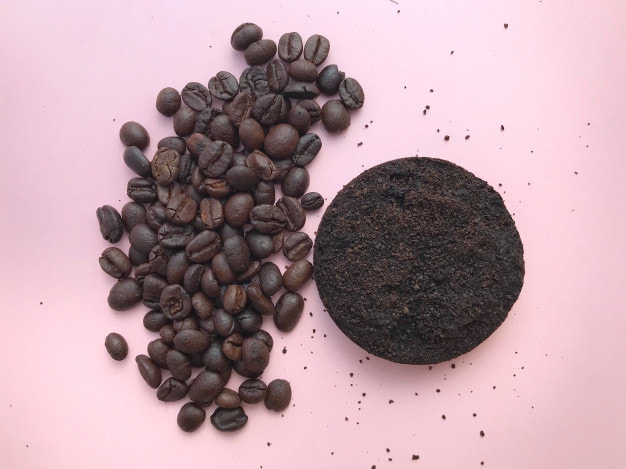
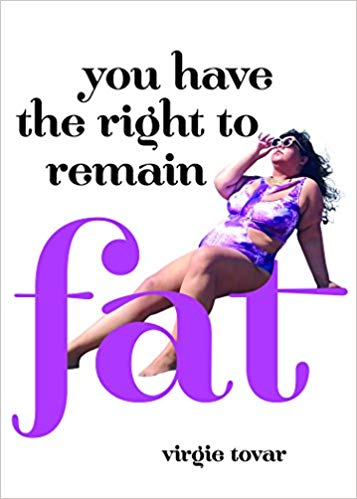
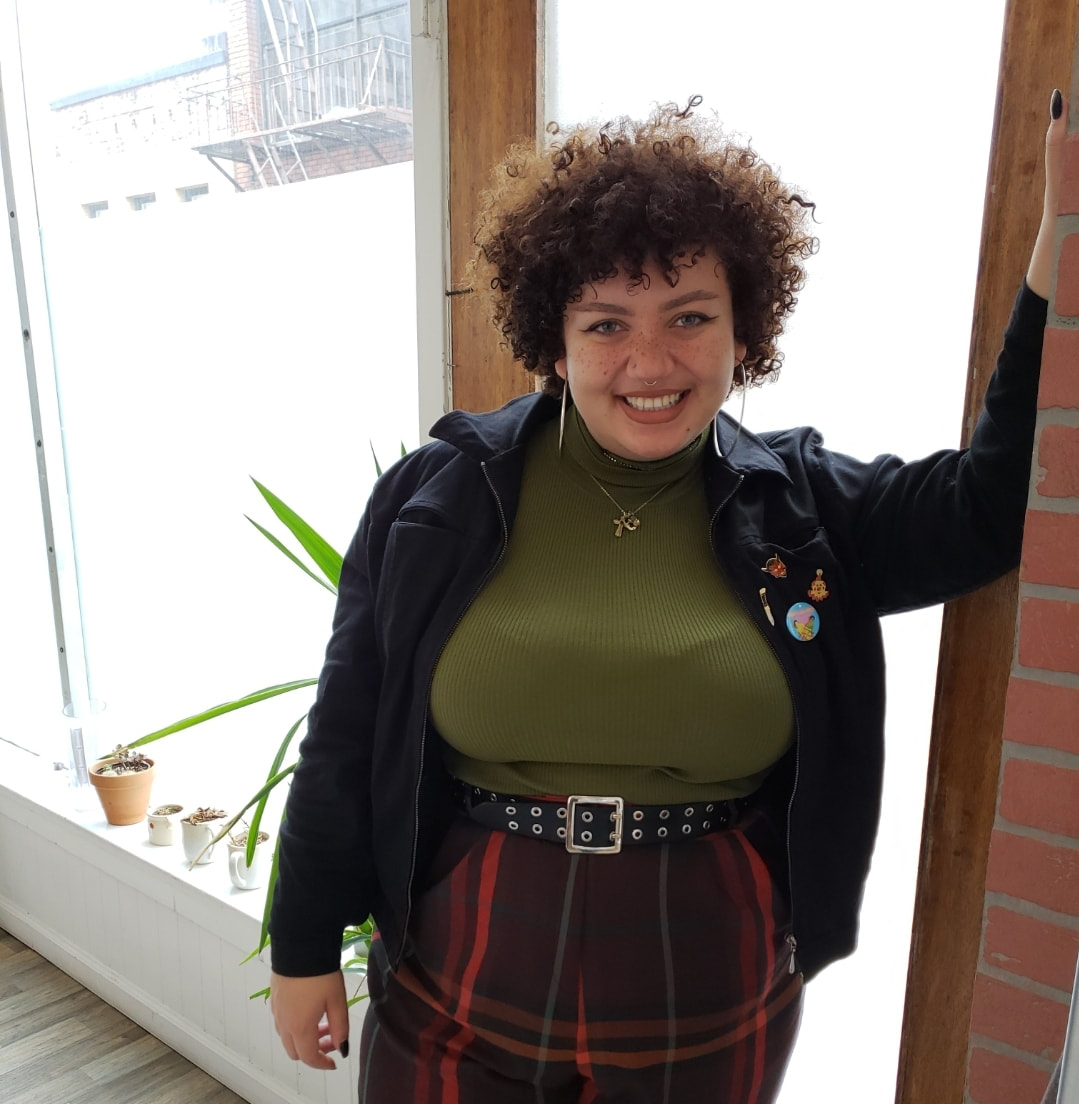
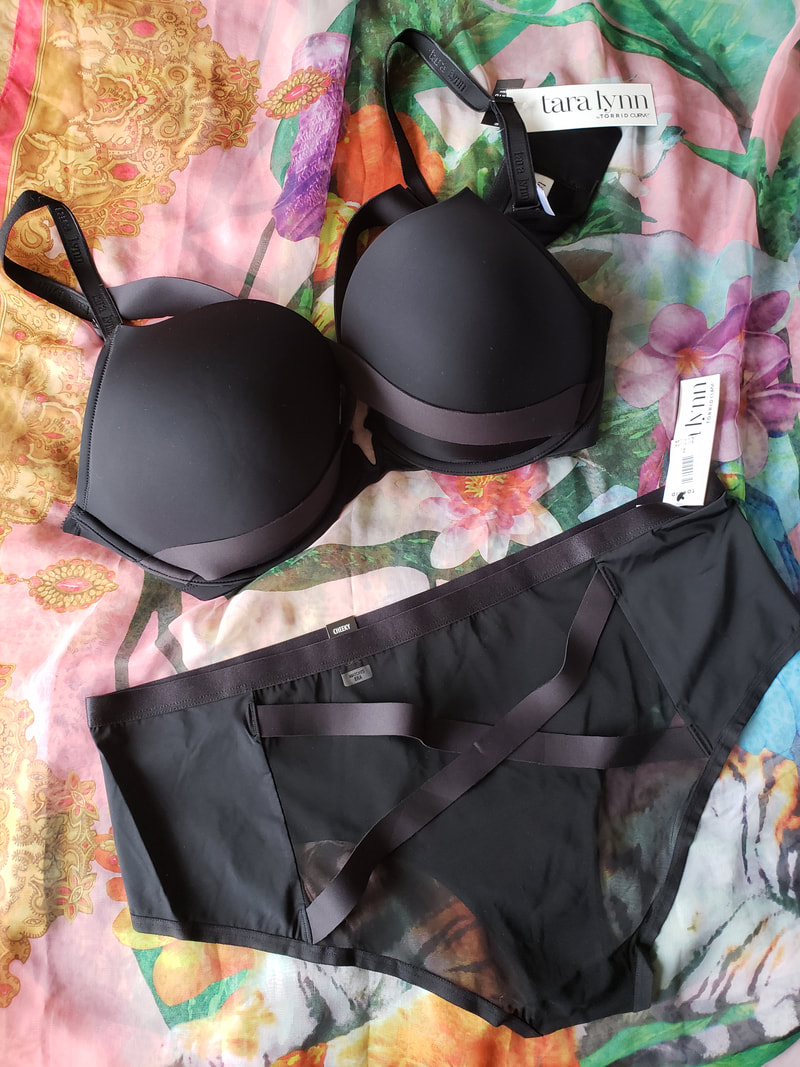
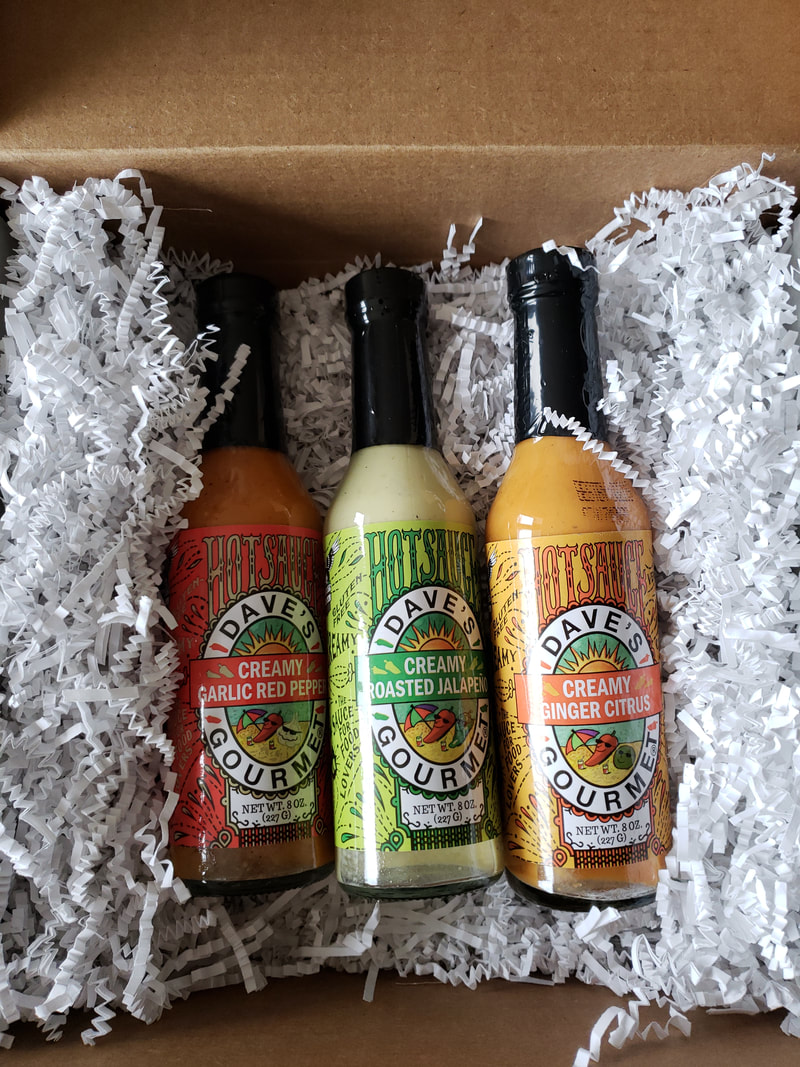
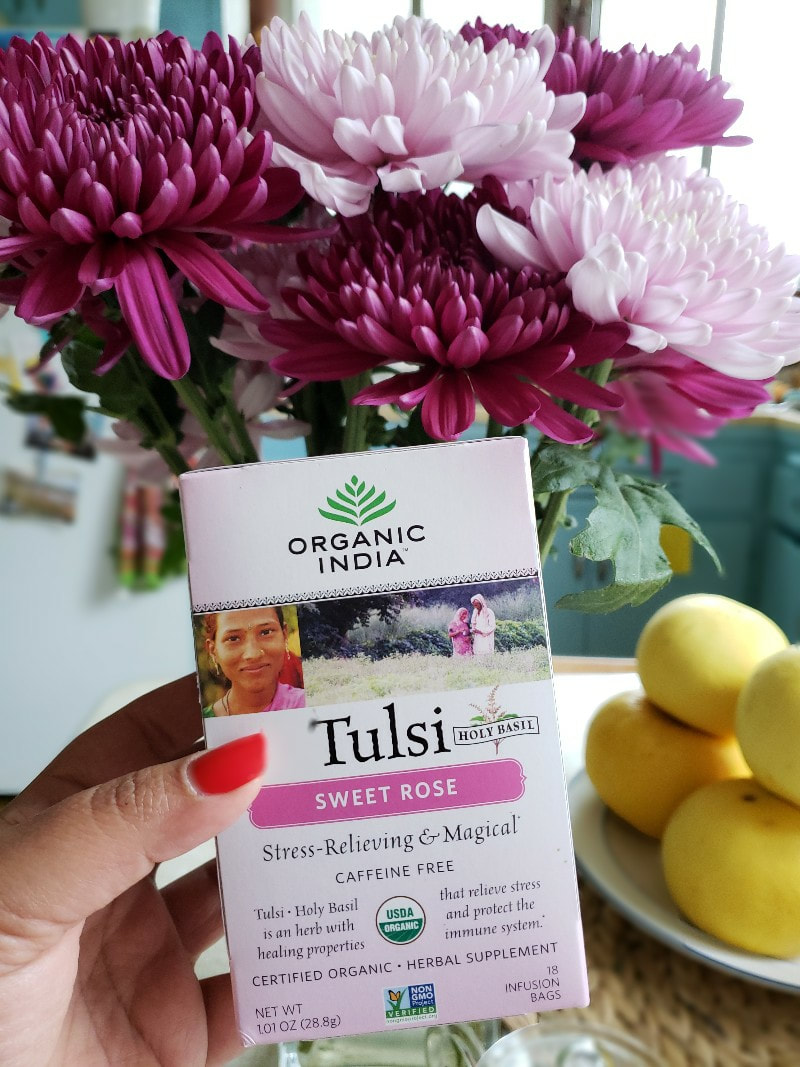
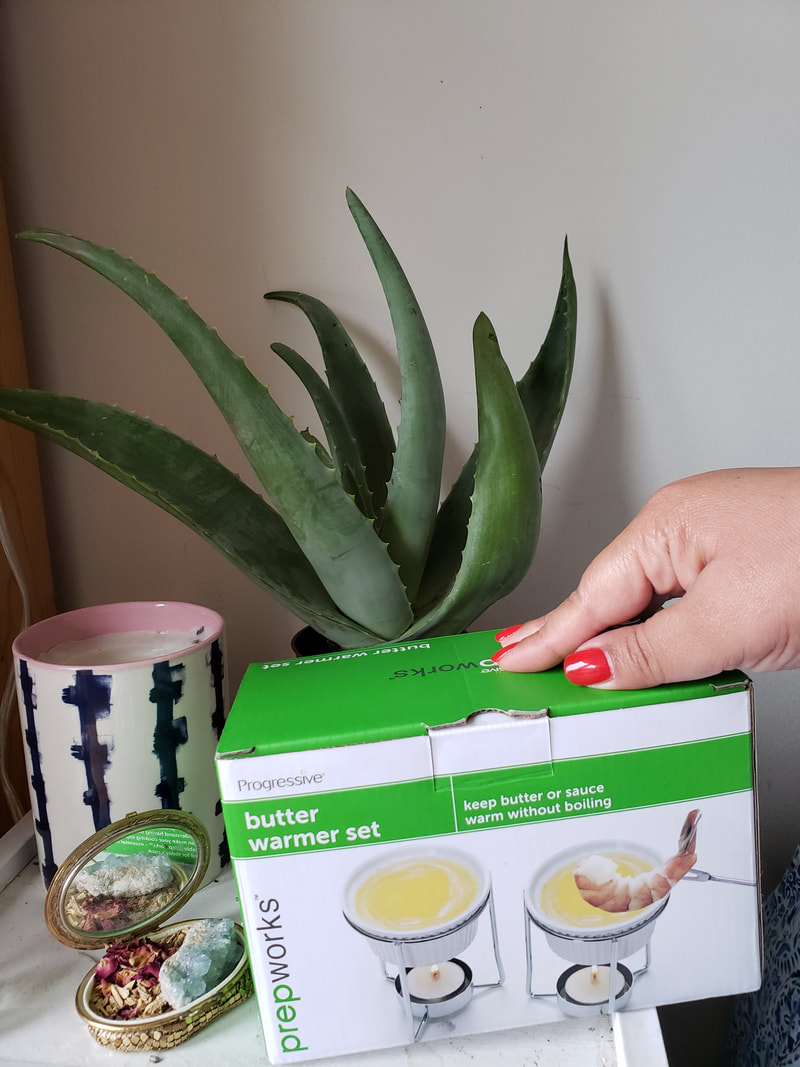
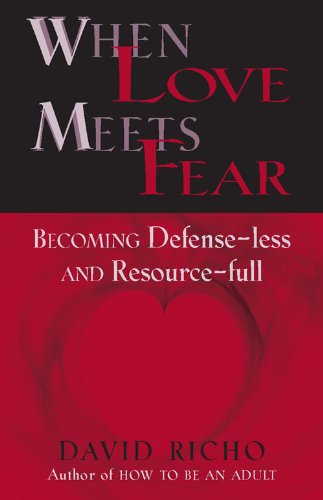

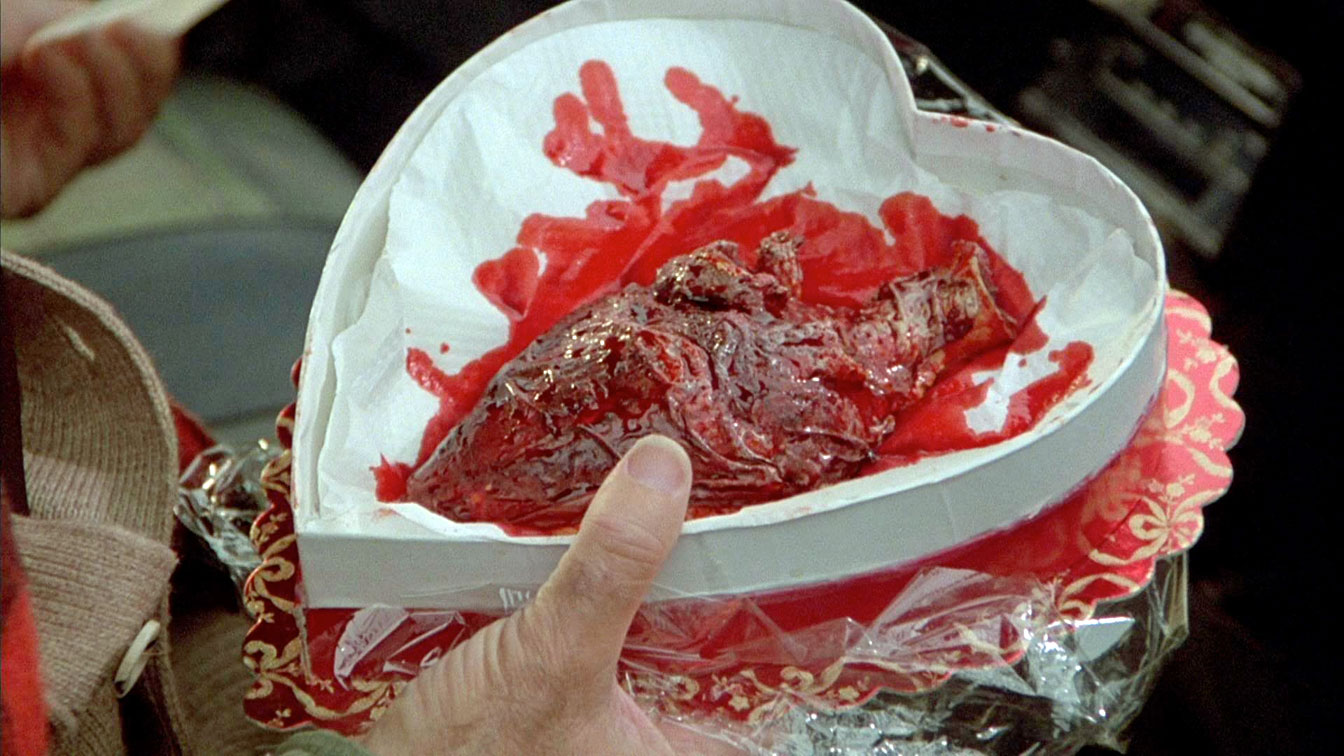
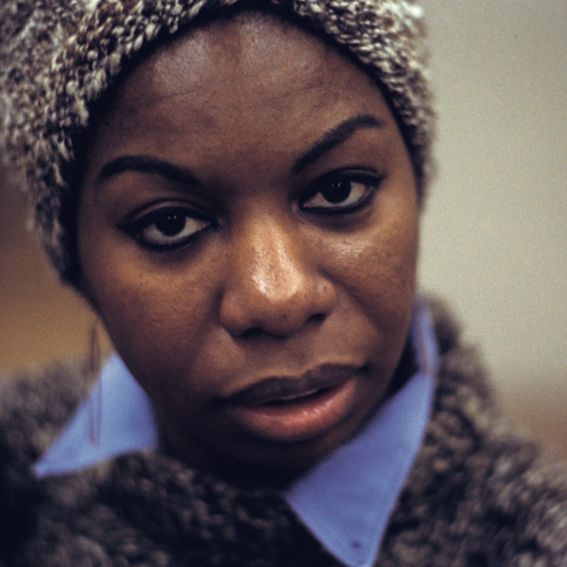
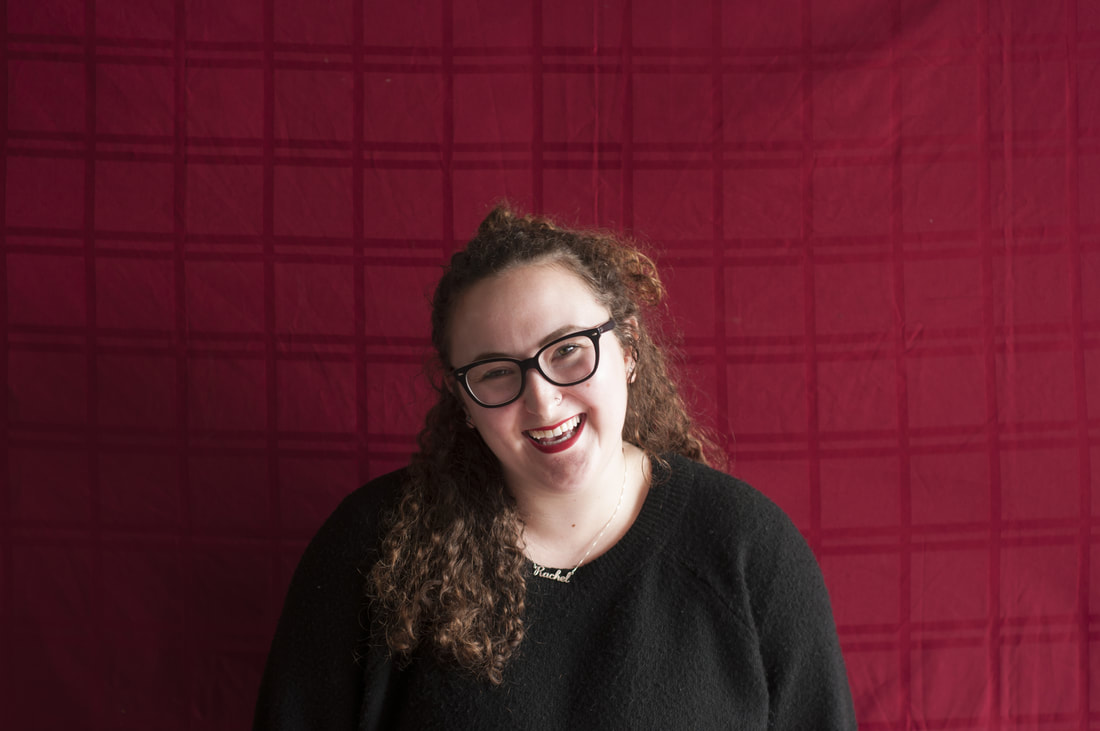
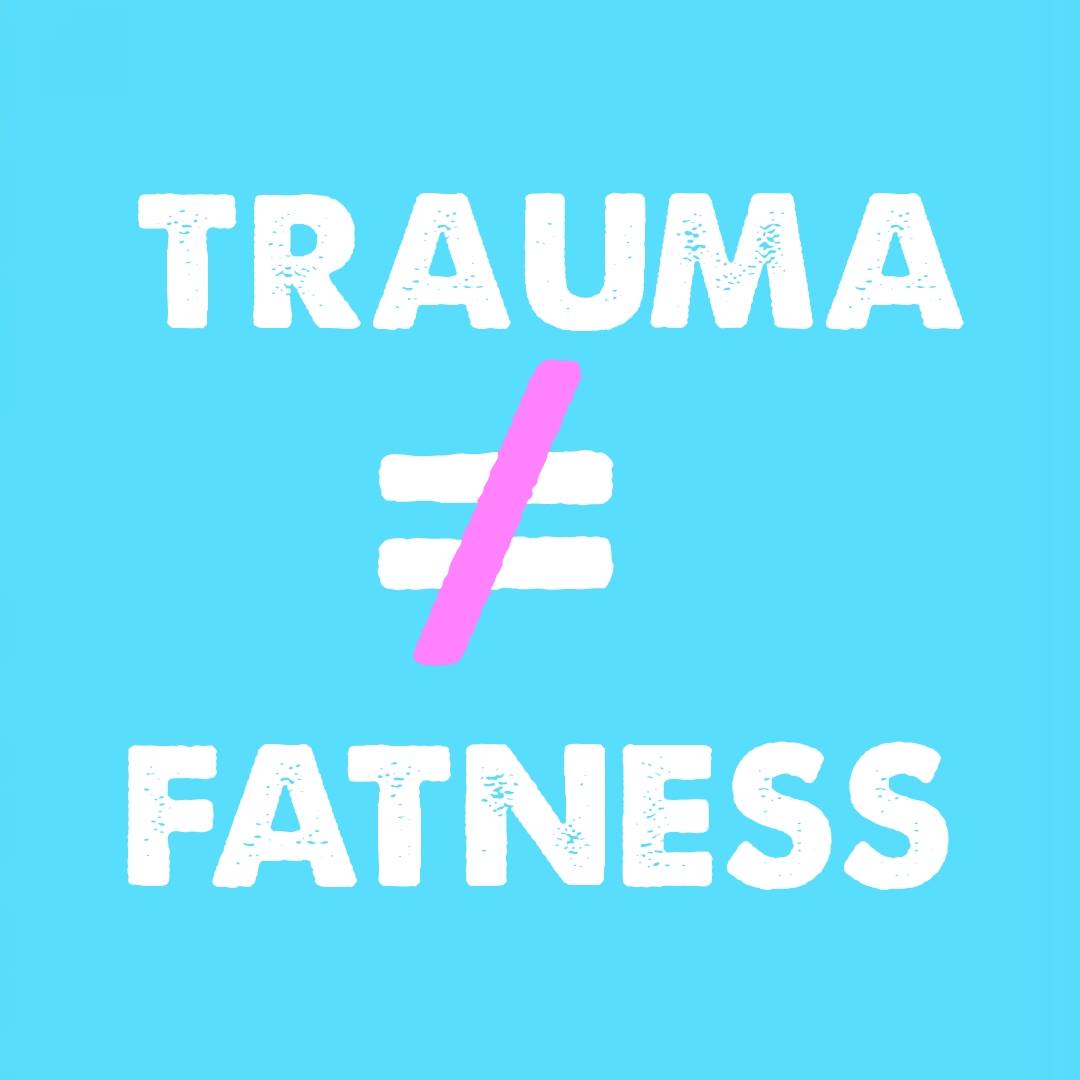
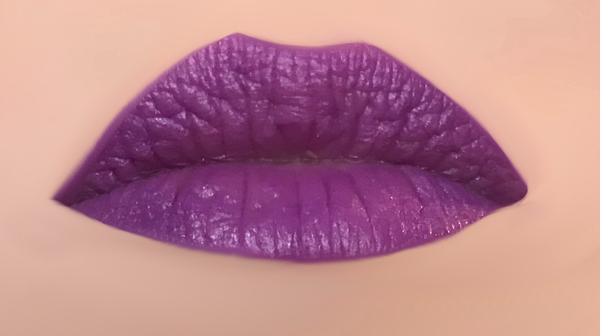
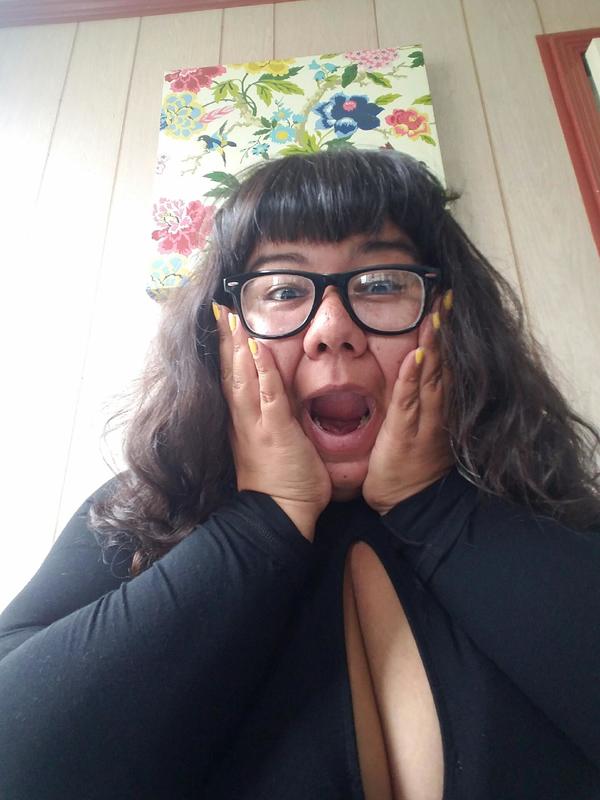
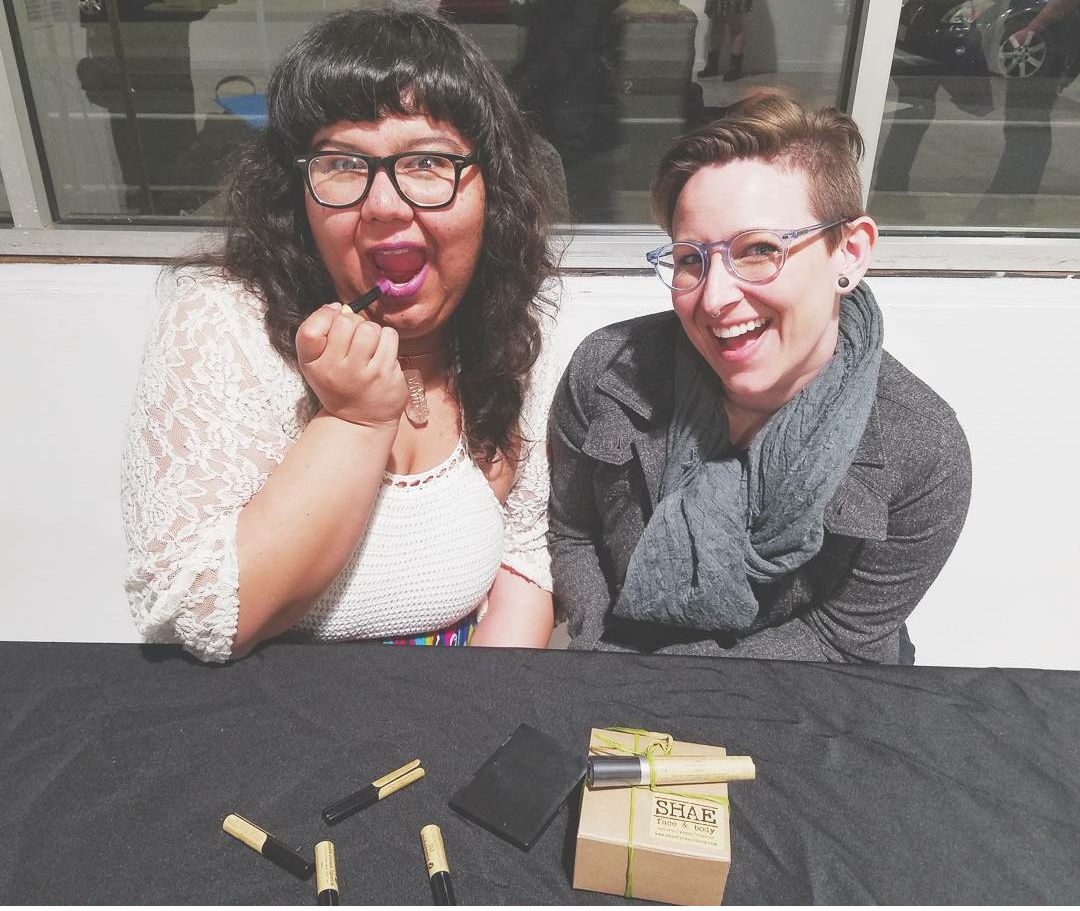

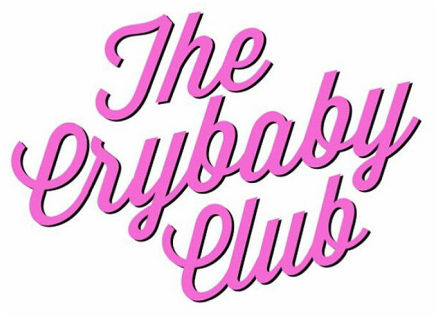


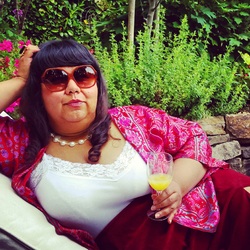
 RSS Feed
RSS Feed